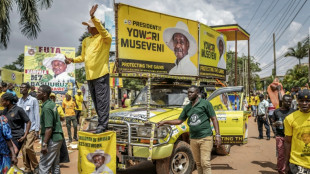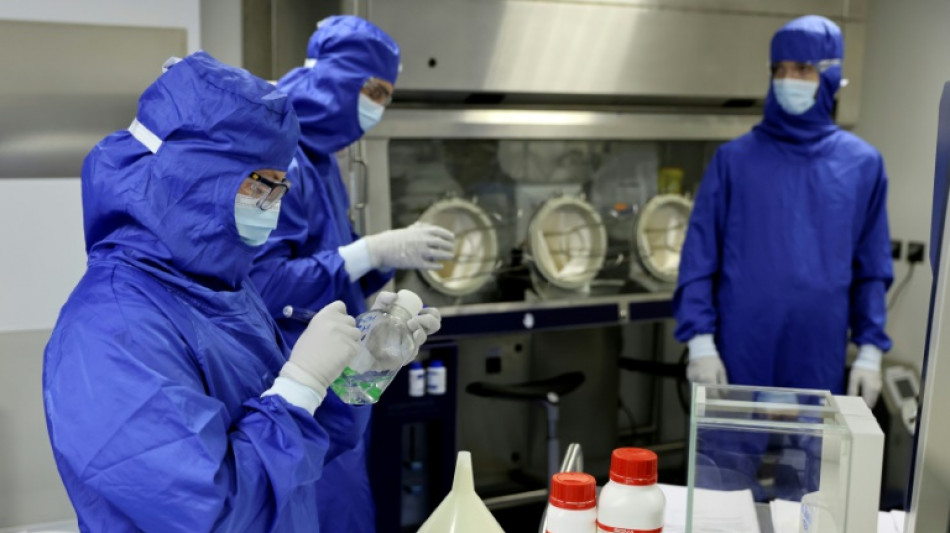
-
 Bills battle Broncos as Allen eyes Super Bowl
Bills battle Broncos as Allen eyes Super Bowl
-
Magic rally to top Grizzlies in NBA Berlin game

-
 Venezuela's Machado says she 'presented' Trump with Nobel medal
Venezuela's Machado says she 'presented' Trump with Nobel medal
-
Key Colombia guerrilla group backs pact to fight US, commander tells AFP
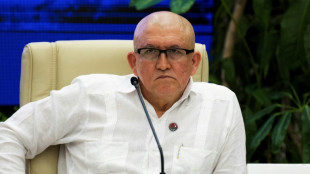
-
 Chiefs' Mahomes targets NFL 'Week 1' after knee surgery
Chiefs' Mahomes targets NFL 'Week 1' after knee surgery
-
Venezuelan interim leader vows oil sector reform after Maduro ouster
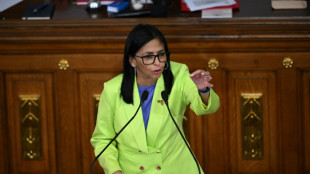
-
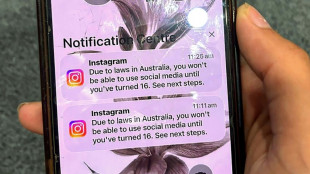 Social media sites block 4.7 million underage accounts in Australia
Social media sites block 4.7 million underage accounts in Australia
-
US court clears Norway's Equinor to resume wind project halted by Trump

-
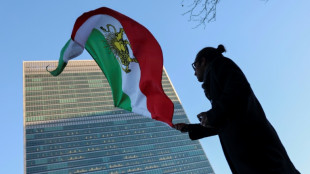 Threats to Iran spike 'volatility': UN official
Threats to Iran spike 'volatility': UN official
-
Rabiot and AC Milan give Como French lesson to stay on Inter's heels

-
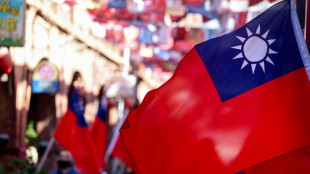 US says reached deal with Taiwan to lower tariffs, boost investments
US says reached deal with Taiwan to lower tariffs, boost investments
-
South Korea's ex-leader Yoon faces first court verdict over martial law chaos

-
 'Gigantic explosion', fire in Dutch city of Utrecht, four hurt
'Gigantic explosion', fire in Dutch city of Utrecht, four hurt
-
Twenty-six charged in latest basketball gambling scandal

-
 Venezuela's Machado meets Trump for 'positive' talks despite snub
Venezuela's Machado meets Trump for 'positive' talks despite snub
-
NBA Europe 'must respect tradition', says commissioner Silver

-
 Thieves steal Pokemon cards in armed robbery at US store
Thieves steal Pokemon cards in armed robbery at US store
-
French Olympic champion Papadakis claims she was under partner's 'control'
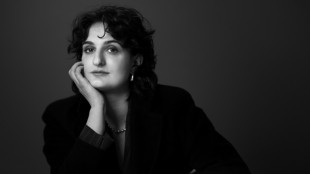
-
 Fury over Grok sexualized images despite new restrictions
Fury over Grok sexualized images despite new restrictions
-
US says Iran halts executions as Gulf allies pull Trump back from strike

-
 Frank says Spurs taking 'small steps' in right direction
Frank says Spurs taking 'small steps' in right direction
-
Syrian activist Sarah Mardini acquitted of migrant trafficking in Greece
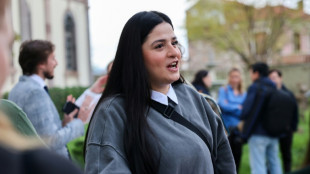
-
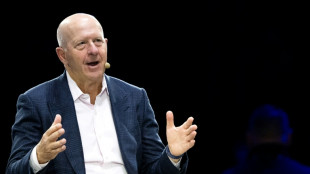 Goldman Sachs' profits jump on hot merger market
Goldman Sachs' profits jump on hot merger market
-
Platini says Infantino has become 'more of an autocrat'
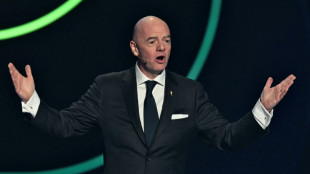
-
 Scottish Borders, Lake District to grace 2027 Tour de France
Scottish Borders, Lake District to grace 2027 Tour de France
-
Venezuela's sidelined Machado arrives at White House for Trump talks

-
 French mother superior bullied nuns at Paris order: inquiry
French mother superior bullied nuns at Paris order: inquiry
-
Cuba pays tribute to soldiers killed in Maduro capture

-
 UK politician joins hard-right Reform just hours after Tories sack him
UK politician joins hard-right Reform just hours after Tories sack him
-
'Gigantic explosion', fire in Dutch city, four hurt

-
 French mother superior bullied nuns at Paris convent - inquiry
French mother superior bullied nuns at Paris convent - inquiry
-
Deprived of heating, Kyiv enters survival mode to beat big freeze
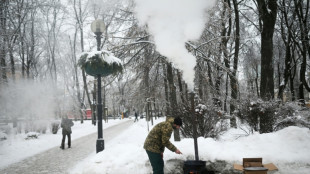
-
 Oil prices slump after Trump eases concerns over Iran
Oil prices slump after Trump eases concerns over Iran
-
French mother superior bullied nuns in Montmartre: report

-
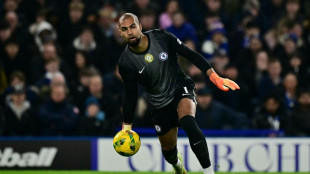 Rosenior refuses to back Sanchez as Chelsea number one
Rosenior refuses to back Sanchez as Chelsea number one
-
Harry due to testify to UK court next week in last tabloid case

-
 Trump threatens to invoke Insurrection Act over Minnesota protests
Trump threatens to invoke Insurrection Act over Minnesota protests
-
Niger faces dilemma over uranium shipment stuck at airport
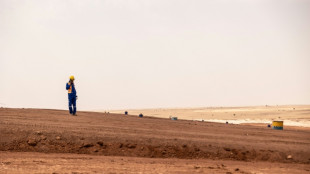
-
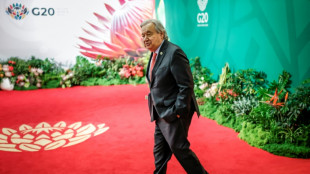 UN chief attacks world leaders putting cooperation on 'deathwatch'
UN chief attacks world leaders putting cooperation on 'deathwatch'
-
Morocco and Senegal prepare for final showdown but Salah's AFCON dream fades

-
 Polls close in Uganda after delays, internet blackout
Polls close in Uganda after delays, internet blackout
-
Forced confession fears as Iran chief justice interrogates protesters
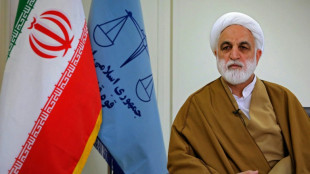
-
 Al-Attiyah closes on sixth Dakar Rally as Ekstrom wins 11th stage
Al-Attiyah closes on sixth Dakar Rally as Ekstrom wins 11th stage
-
Luis Enrique has no doubts about PSG's title credentials

-
 England off-spinner Bashir signs for Derbyshire after Ashes exile
England off-spinner Bashir signs for Derbyshire after Ashes exile
-
Trump convinced 'to give Iran a chance' after threats over protest crackdown

-
 European military mission in Greenland as US aim 'remains intact'
European military mission in Greenland as US aim 'remains intact'
-
UK's Hockney warns moving Bayeux Tapestry would be 'madness'
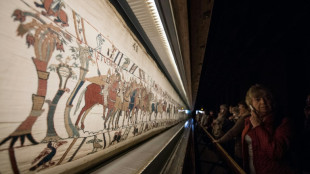
-
 Senior UK opposition politican sacked over 'plot' to join hard-right party
Senior UK opposition politican sacked over 'plot' to join hard-right party
-
Syrians flee Kurdish-controlled area near Aleppo


Immunologist wins 'Breakthrough Prize' for innovative cancer treatment
When Michel Sadelain began his decades-long quest to genetically modify immune cells to fight cancer, his peers dismissed his ideas as absurd and even his mother grew concerned for his career.
On Thursday, the French and Canadian scientist was announced as a winner of the prestigious Breakthrough Prize for his pioneering work in CAR T-cell therapy, a new form of treatment that has shown exceptional efficacy against blood cancers.
"Over the years, I can't tell you how many times I've heard this won't work, can't work, even if it works it has no future," the 63-year-old told AFP in an interview.
He was passed up for grants, promotions became uncertain, and graduate students steered clear of joining his lab.
"One thing I have to do is to throw a big party with all those who contributed," Sadelain said, laughing. He will split $3 million with American immunologist Carl June, who also led groundbreaking research into the field independently of his co-winner.
The Breakthrough Prize awards "the world's most brilliant minds" in fields including life sciences, fundamental physics and mathematics, styling itself as the Silicon Valley-backed answer to the Nobels. Founding sponsors include Sergey Brin, Priscilla Chan and Mark Zuckerberg.
- Living drugs -
Sadelain studied medicine in Paris, then immunology in Canada, before taking up postdoctoral research at the Massachusetts Institute of Technology in 1989.
At the time, there was great interest in developing vaccines to train the immune system to recognize and destroy cancer cells, in the same way it can be taught to tackle foreign invaders such as bacteria and viruses.
"But I started thinking that perhaps we should learn how to directly instruct the fighters of the immune system, in particular the T-cells," he said, with his early work focused on mice.
After moving to the Memorial Sloan Kettering Cancer Center in New York, Sadelain developed a way to use a disabled virus to genetically reprogram human T-cells, so that they grew claw-like structures called antigen receptors, allowing the T-cells to target specific cancer cells.
Beyond recognizing the cancer, these Chimeric Antigen Receptor (CAR) T-cells, as Sadelain named them, were also given genetic instructions to enter a killing mode and to multiply, growing an army inside the body to eliminate the enemy.
Thanks to the groundwork laid by June and Sadelain, there are now half a dozen US approved CAR-T cell therapies, with hundreds more trials underway.
Patients' own T-cells are collected, modified outside the body, then infused back into the blood, creating a so-called "living drug."
In a trial against multiple myeloma, a cancer that develops in plasma cells, 72 percent of patients responded to treatment, with total disappearance of the disease seen in 28 percent, among whom 65 percent had sustained eradication for 12 months.
- High costs -
The treatment comes with serious side effects -- including in some cases death -- from the release of inflammatory molecules called cytokines. Doctors have learned to recognize and manage this better over time.
Another risk is nervous system impairment, with symptoms such as deep confusion or inability to talk, although these clear up within days.
Sadelain is excited for what the future could hold: from improving the T-cells so they tackle solid cancers, to treating autoimmune conditions such as lupus, to fighting currently intractable infections such as HIV.
One area he acknowledges must improve is the sky high cost, with price tags upwards of $500,000. In the United States, private and government-subsidized insurers pick up most of the tab for those who qualify, as do health systems in Europe.
"Researchers were aghast when we saw what was charged for these very first therapies," he said. "The cost has to come down," he added, something he expects to happen as the pharmaceutical industry improves its processes, and as scientists continue to innovate.
For example, his own lab is preparing to publish a study showing that improvements to CAR-T cells' efficiency vastly reduces the number needed for treatment.
Other researchers are looking at using stem cells to manufacture CAR-T cells, creating a more economical "off the shelf" solution instead of relying on patients' cells. Clinical testing is underway.
W.Mansour--SF-PST


